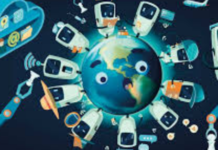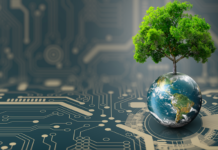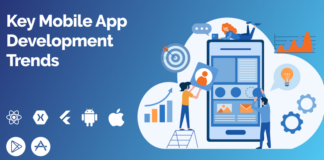Artificial Intelligence (AI) is one of the most groundbreaking technologies of the 21st century, reshaping industries, redefining the way we live, and driving innovation across the globe. At its core, AI refers to the development of computer systems that can perform tasks typically requiring human intelligence. These tasks range from understanding natural language to recognizing patterns, making decisions, and even learning from experience. The rapid advancement of AI technologies is ushering in a new era of possibilities, but it also raises important questions about its societal impact.
The Evolution of AI
AI as a concept has been around for decades, but it has made significant strides in recent years thanks to advancements in machine learning, deep learning, and data analytics. In the past, AI systems were rule-based, relying on pre-programmed instructions to perform specific tasks. Modern AI, however, is more dynamic, using vast amounts of data to “learn” and improve over time.
Machine learning, a subset of AI, allows systems to identify patterns and make predictions based on historical data. Deep learning, which mimics the human brain’s neural networks, has taken AI to the next level, enabling it to understand and process complex information like images, speech, and unstructured data.
Applications of AI in Everyday Life
AI is already embedded in various aspects of our daily lives, from virtual assistants like Siri and Alexa to personalized recommendations on streaming services and e-commerce platforms. In addition to enhancing convenience, AI is making significant contributions in fields such as:
- Healthcare: AI is revolutionizing medical diagnostics, helping doctors detect diseases like cancer at earlier stages, and personalizing treatment plans based on patient data.
- Finance: AI is automating financial services, fraud detection, and even predicting market trends with greater accuracy.
- Transportation: AI powers autonomous vehicles, improving road safety and potentially reshaping the future of transportation with self-driving cars and drones.
- Education: AI-driven tutoring systems and adaptive learning platforms offer personalized learning experiences, helping students learn at their own pace.
- Entertainment: AI-generated content and game development, as well as deepfake technology, are transforming the entertainment industry.
AI’s Role in Industry
AI is driving efficiency, productivity, and innovation in industries such as manufacturing, agriculture, and retail. In manufacturing, AI-powered robots and predictive maintenance systems improve production processes by minimizing downtime and enhancing quality control. In agriculture, AI is optimizing farming techniques, from precision planting to pest control, while in retail, AI is streamlining inventory management and improving customer service through chatbots and virtual shopping assistants.
AI is also playing a critical role in business analytics and decision-making. By analyzing large datasets, AI helps companies identify trends, optimize operations, and develop new strategies for growth. This is particularly useful in industries that deal with massive amounts of data, such as finance, marketing, and e-commerce.
Challenges and Ethical Concerns
Despite the numerous benefits, AI also presents several challenges and ethical dilemmas. Concerns about job displacement due to automation, bias in AI systems, data privacy, and the potential misuse of AI in surveillance and military applications are growing. Addressing these challenges requires a careful balance between innovation and regulation.
- Job Displacement: While AI creates new opportunities, it also has the potential to replace jobs, particularly in sectors where repetitive tasks can be automated. Governments and businesses need to invest in reskilling programs to prepare workers for the AI-driven economy.
- Bias and Fairness: AI systems can inherit biases from the data they are trained on, leading to unfair outcomes. For example, biased hiring algorithms or facial recognition systems can disproportionately affect marginalized communities. Ensuring fairness and transparency in AI systems is essential for building trust in this technology.
- Privacy and Security: AI systems rely on vast amounts of data to function, raising concerns about privacy and data security. Striking a balance between innovation and protecting individuals’ personal information is a major challenge for policymakers.
- Autonomous Weapons: The development of AI-powered autonomous weapons poses significant ethical concerns, particularly regarding the potential for machines to make life-or-death decisions without human oversight. International regulations and ethical guidelines are needed to prevent the misuse of AI in warfare.
The Future of AI
The future of AI is incredibly promising, with the potential to drive breakthroughs in areas like climate change, disease prevention, and space exploration. As AI continues to evolve, it will become even more integrated into our daily lives, enhancing productivity, solving complex problems, and potentially augmenting human intelligence.
In the long term, AI could lead to the development of artificial general intelligence (AGI), where machines possess cognitive abilities equal to or surpassing those of humans. This raises profound questions about the role of humans in an AI-driven world and how society should adapt to this technological shift.
AI is a transformative technology that is reshaping industries and changing the way we live, work, and interact with the world. While it presents numerous opportunities for innovation and progress, it also requires careful consideration of its ethical implications and societal impact. By addressing these challenges head-on, we can harness the power of AI to create a future that benefits everyone.






